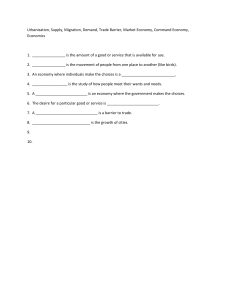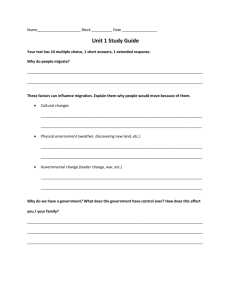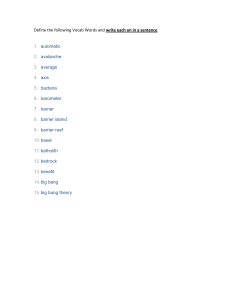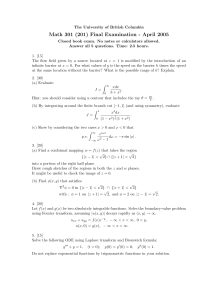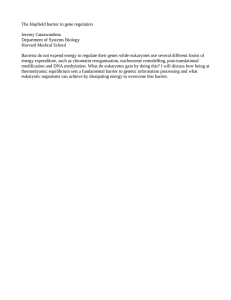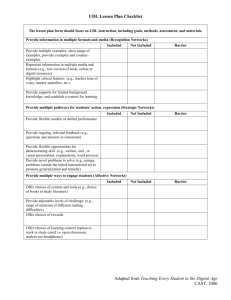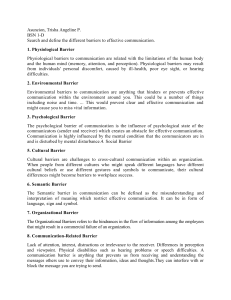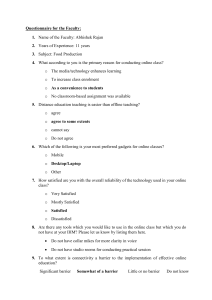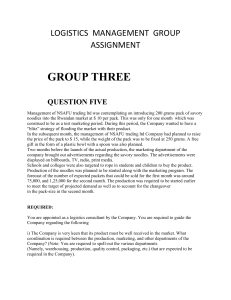NATIONAL HUMAN RIGHTS COMMISSION OF INDIA REGISTRATION ON HUMAN RIGHTS
advertisement
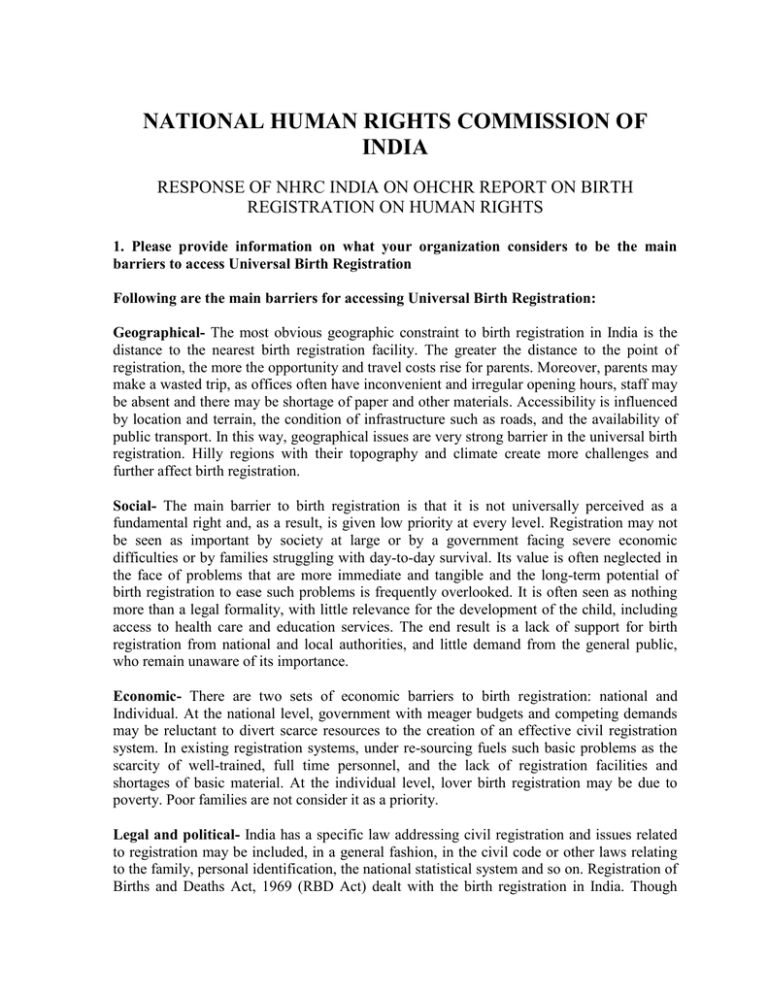
NATIONAL HUMAN RIGHTS COMMISSION OF INDIA RESPONSE OF NHRC INDIA ON OHCHR REPORT ON BIRTH REGISTRATION ON HUMAN RIGHTS 1. Please provide information on what your organization considers to be the main barriers to access Universal Birth Registration Following are the main barriers for accessing Universal Birth Registration: Geographical- The most obvious geographic constraint to birth registration in India is the distance to the nearest birth registration facility. The greater the distance to the point of registration, the more the opportunity and travel costs rise for parents. Moreover, parents may make a wasted trip, as offices often have inconvenient and irregular opening hours, staff may be absent and there may be shortage of paper and other materials. Accessibility is influenced by location and terrain, the condition of infrastructure such as roads, and the availability of public transport. In this way, geographical issues are very strong barrier in the universal birth registration. Hilly regions with their topography and climate create more challenges and further affect birth registration. Social- The main barrier to birth registration is that it is not universally perceived as a fundamental right and, as a result, is given low priority at every level. Registration may not be seen as important by society at large or by a government facing severe economic difficulties or by families struggling with day-to-day survival. Its value is often neglected in the face of problems that are more immediate and tangible and the long-term potential of birth registration to ease such problems is frequently overlooked. It is often seen as nothing more than a legal formality, with little relevance for the development of the child, including access to health care and education services. The end result is a lack of support for birth registration from national and local authorities, and little demand from the general public, who remain unaware of its importance. Economic- There are two sets of economic barriers to birth registration: national and Individual. At the national level, government with meager budgets and competing demands may be reluctant to divert scarce resources to the creation of an effective civil registration system. In existing registration systems, under re-sourcing fuels such basic problems as the scarcity of well-trained, full time personnel, and the lack of registration facilities and shortages of basic material. At the individual level, lover birth registration may be due to poverty. Poor families are not consider it as a priority. Legal and political- India has a specific law addressing civil registration and issues related to registration may be included, in a general fashion, in the civil code or other laws relating to the family, personal identification, the national statistical system and so on. Registration of Births and Deaths Act, 1969 (RBD Act) dealt with the birth registration in India. Though birth registration laws exist, there are practical barriers to registration. In some cases legislation does not allow enough time for registration, given the geographical terrain and the availability of registration services, as in India. In some cases, barriers are harder to break down as they are enforced by the state and are therefore not merely physical, but political. Such barriers affect numerous groups disproportionally including migrants, ethnic minorities and women. Complex Administration Procedures- In India, administrative structure is very complex. The procedures are confusing and complicated and need to be simplified. Cultural and Historical Traditions- Even an existing civil registration system, backed by relevant legislation, may be hampered by a failure to recognize the culture and everyday realities of local communities. There can be a serious language barrier to registration. Another barrier can be poor understanding of the importance of registration among the population. In backward regions, birth registration suffers as a result of a gender bias that excluded women from the entire process. In such cases, registration is far more likely to be delayed if the father is absent. The gender discrimination that keeps girls out of school can have a negative way of impact on birth registration. First, in India, girl marriages will be effected and second patriarchal thinking. Some other social evils are hinder to the birth registration. For instance, lower age of the girl is helpful in becoming her marriage. Protecting Vital Documents- Certificate use only for a few days in a year. Poverty and housing problems creates safety problems of birth certificates maintenance. Lack of Awareness and Incentives- This is a very common cause of low birth registration. The government of India has taken very few initiatives in this regard. Lack of Resources- Resources play a vital role in ensuring the system works well. Without them, officers will be ill-equipped. Lack of resources for birth registration may be due to lack of political will. 2. Good practices undertaken to improve the rates of birth registration and to ensure awareness of the importance of birth registrationFollowing practices may be helpful for universal birth registration: 1. Encouraging states to priority of birth registration 2. Strengthening capacity of government institutions 3. Piloting computerized record keeping 4. Facilitating partnerships between government and people 5. Contribution to monitoring the system effectively 6. Universal birth registration campaign *********
